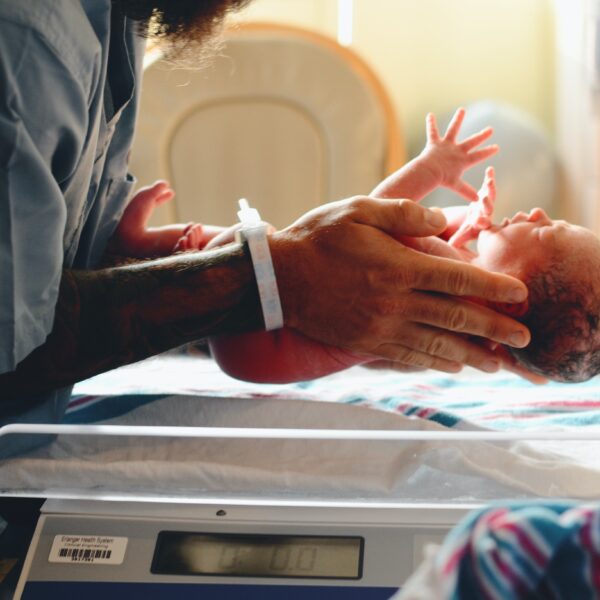Babies born during COVID are talking less, and are slower to develop language, study finds

Babies born during the COVID-19 pandemic produced “significantly fewer vocalisations” and had less verbal communication with their caregivers compared to those born before COVID-19, a new independent study has found, leaving researchers concerned for the long-term success of children born after the pandemic began.
Researchers from Brown University worked with a national not-for-profit organisation focused on early language development to gather their findings, with both teams using LENA’s “talk pedometer” technology. The wearable device delivers detailed information on what children hear throughout the day. It measures the number of words spoken near the child in addition to the child’s own language-related vocalisations.
The technology also counts child/adult interactions, called “conversational turns”, a core part of language learning for children. These “turns” drive brain development in children, and the joint findings from this study are the latest pieces of evidence pointing to concerns for pre and post pandemic babies.
Principal investigator from Brown’s Advanced Baby Imaging Lab, Sean Deoni, said he and other staffers first became aware of the problem when they noticed that children who visited the lab after March 2020 took longer to complete cognitive tasks.
“They were not as attentive, or at least not performing as well as we normally have seen,” he said.
This change prompted him to look more closely at the various points of data from the nearly 800 children the lab had worked with in recent years.
After examining their neuroimaging and neurocognitive results, he and his team found child motor and language scores decreased sharply in 2021 and 2022, prompting them to search for an explanation for the decline.
When the team analysed information gained from children between 12 months and 16 months of age who were born before 2019 and after July 2020, they found a major drop in verbal functioning between the two groups with those born after COVID-19 demonstrating slower verbal growth over time.
The babies also experienced a significantly slower rate of white matter development when compared to the children from studies done before the pandemic. White matter is often called the “wiring” of the brain, and is the material which carries information through the brain to different regions.
Children from the lowest socioeconomic level in the cohort were most impacted, with the frequency of caregiver/child conversations affecting children from the poorest families the most the researchers found.
“It’s often the case that when these adverse events happen, it’s those who are already the most vulnerable that are hit the hardest…and I think that we are seeing this here,” said Jill Gilkerson, a linguist specialising in early language acquisition and LENA’s Chief Research and Evaluation Officer.
While the researchers did not specifically explore the cause of the drop in caregiver interactions, they speculated that the heightened stress, depression and burnout associated with the pandemic were possible explanations.
Researchers hope the data gathered will validate concerns caregivers may be having, help them know they are not alone in those feelings and further the conversation about the need to invest in support for families at every level.
This piece has been summaried based on a more detailed piece from The 74, a non-profit, non-partisan news site covering education in America. To access the original article, please see here.
Popular

Workforce
Policy
Quality
Practice
Provider
Research
ECEC must change now, our children can’t wait for another inquiry
2025-07-02 07:47:14
by Fiona Alston

Practice
Provider
Quality
Workforce
Leading with Curiosity: How distributed leadership is redefining the future of early childhood education
2025-07-03 07:42:07
by Contributed Content

Events News
Workforce
Marketplace
Practice
Quality
Provider
Research
An exclusive “Fireside Chat” with ECEC Champion Myra Geddes
2025-07-01 11:25:05
by Fiona Alston











